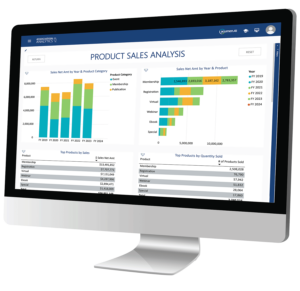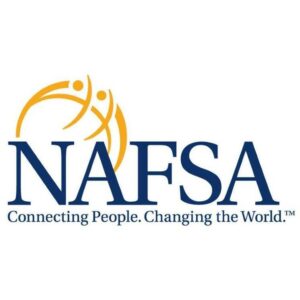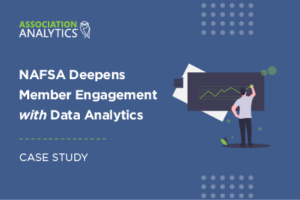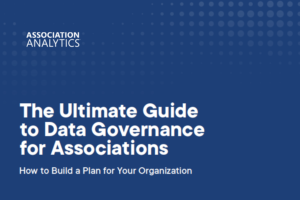Association of International Educators (NAFSA) Deepens Member Engagement with Data Analytics
The Association of International Educators (NAFSA) had a growing volume of data that was being captured and stored in disparate, siloed locations.
Their vision was to bring together data into a central repository and build out better data processes for the organization, but they weren’t sure exactly how to accomplish this goal. That’s when they heard about Association Analytics (A2), who could help them connect their data and create the sort of data-driven environment they wanted to build. By working with A2, their data is now accessible in a central repository, giving business users and executives an easy way to use data to inform decision-making.
Analytics eliminates uncertainty, and allows NAFSA to use data to drive strategic decision-making
One of NAFSA’s goals was to develop an environment where they wouldn’t need to re-ask the same questions every year. Association Analytics has helped to make data points standard, so that it’s easy to know key metrics across different member segments. This frees up the NAFSA team and leaves more time to focus on higher priority business objectives, like using data to inform strategy.
“We’re now beginning to use data to drive business decisions to inform when we create new programs, when we sunset old programs, helping us segment our marketing and really think about what products matter to which of our members, our attendees, and our network as a whole,” said Kyle Contrata, Data Analyst and Project Manager at NAFSA.
Creating a foundation for data has helped NAFSA to better understand their business and member needs, meaning strategy decisions can be made based on data. It has also helped to cut down requests for ad- hoc reports and the amount of time spent building them, instead allowing business users to directly interact with data when they need it.
“We’re now beginning to use data to drive business decisions to inform when we create new programs, when we sunset old programs, helping us segment our marketing and really think about what products matter to which of our members, our attendees, and our network as a whole.”

Analytics helps NAFSA better understand their members,
and why they renew
and why they renew
By working with A2 on data analytics, NAFSA has gained a better understanding of retention rates and can drill down into specific regions and member types for deeper analysis. They can understand member behavior, and why people do what they do.
They’re also using that data to better understand what content their members are interested in, enabling them to deliver more relevant content to different member segments.
“Being able to understand what content, programs, and products matter to those many different professionals has really helped us begin to segment and market our programs and products better to identify areas for new opportunities and growth” said Contrata.
Instead of looking at membership as an aggregate or average, NAFSA recognizes that each of their different member segments have unique needs. Using data analytics, they can drill into these segments and deliver more targeted, relevant outreach that has a much higher chance for conversions.
Association of International Educators (NAFSA)
The Association of International Educators (NAFSA) is the world’s largest nonprofit association dedicated to international education and exchange. With over 10,000 members worldwide including 150 countries represented among its members, NAFSA’s reach is vast and it’s needs varied. They are the leading organization committed to international education and
exchange, working to advance polices and practices that give their membership and educators the world over the knowledge and skills needed to engage with and succeed in an increasingly complex and interconnected world.
Starting Your Data Journey
When NAFSA and Association Analytics began their journey together, the first step was clarifying their own data universe, what they want to do, and how to get there. That’s where data governance comes in. If you’d like to get a start on that, and start building toward the data-informed world that NAFSA and other forward-thinking associations have found for themselves and their members.


